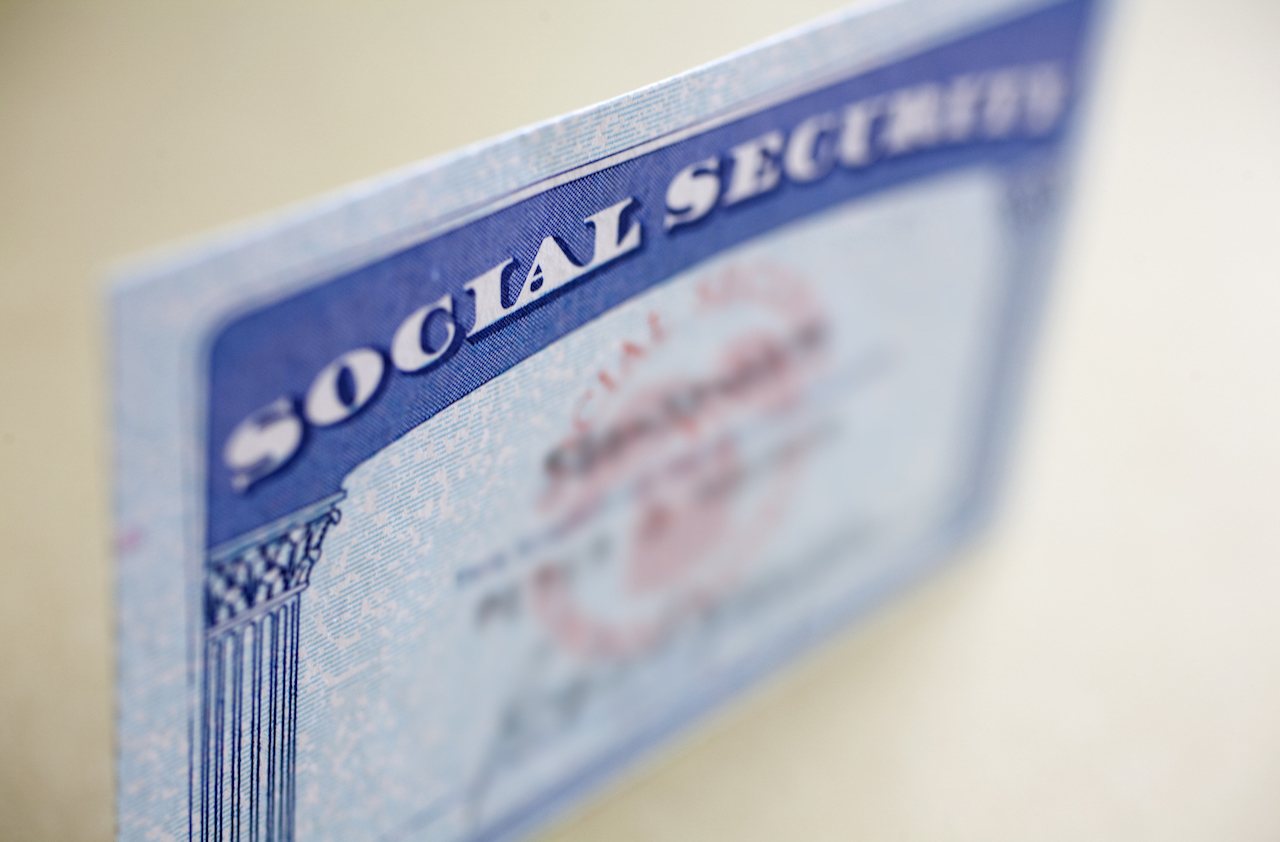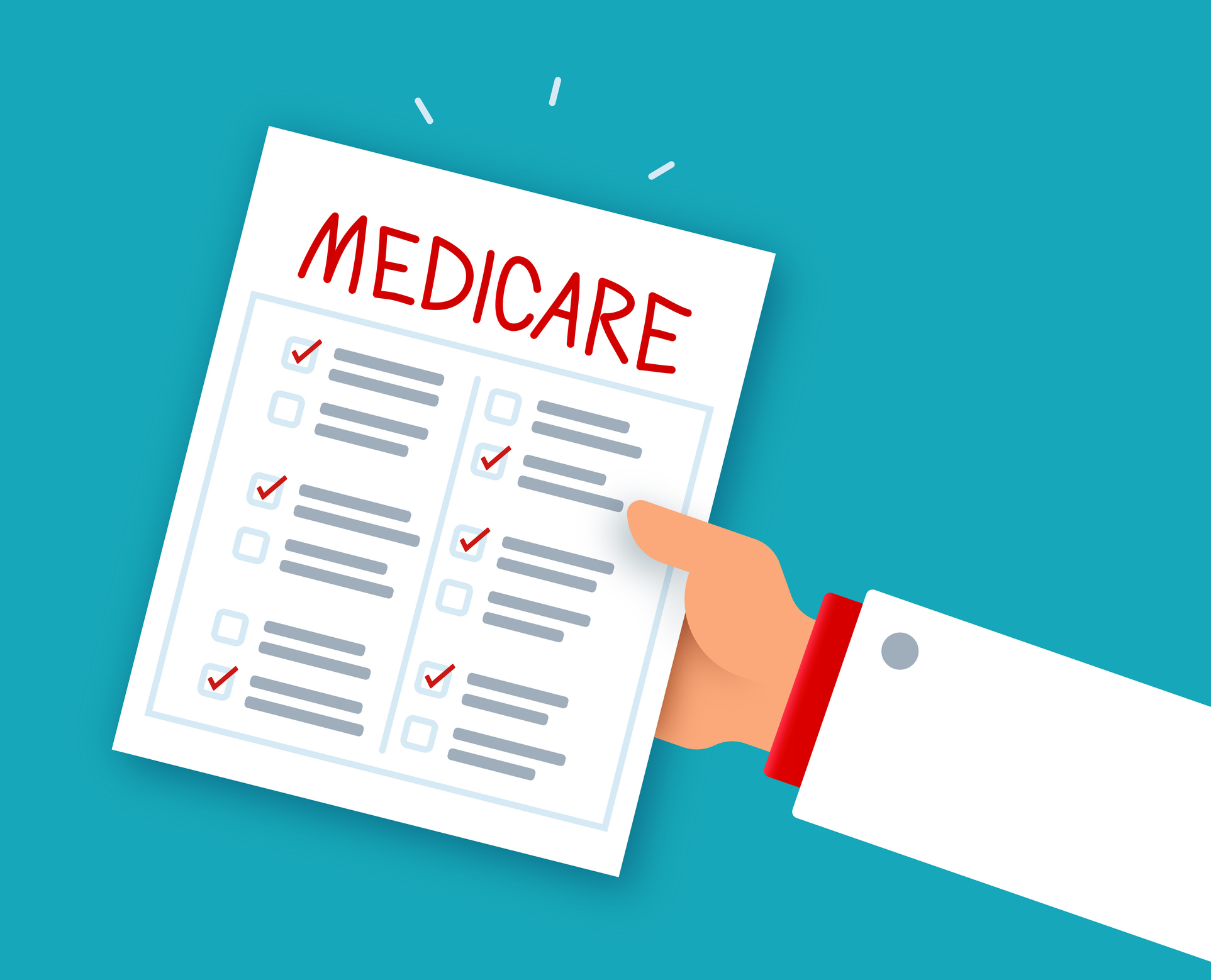A Rundown of Social Security Benefits
Here are the basics of what you'll get and when.

Profit and prosper with the best of Kiplinger's advice on investing, taxes, retirement, personal finance and much more. Delivered daily. Enter your email in the box and click Sign Me Up.
You are now subscribed
Your newsletter sign-up was successful
Want to add more newsletters?

Delivered daily
Kiplinger Today
Profit and prosper with the best of Kiplinger's advice on investing, taxes, retirement, personal finance and much more delivered daily. Smart money moves start here.

Sent five days a week
Kiplinger A Step Ahead
Get practical help to make better financial decisions in your everyday life, from spending to savings on top deals.

Delivered daily
Kiplinger Closing Bell
Get today's biggest financial and investing headlines delivered to your inbox every day the U.S. stock market is open.

Sent twice a week
Kiplinger Adviser Intel
Financial pros across the country share best practices and fresh tactics to preserve and grow your wealth.

Delivered weekly
Kiplinger Tax Tips
Trim your federal and state tax bills with practical tax-planning and tax-cutting strategies.

Sent twice a week
Kiplinger Retirement Tips
Your twice-a-week guide to planning and enjoying a financially secure and richly rewarding retirement

Sent bimonthly.
Kiplinger Adviser Angle
Insights for advisers, wealth managers and other financial professionals.

Sent twice a week
Kiplinger Investing Weekly
Your twice-a-week roundup of promising stocks, funds, companies and industries you should consider, ones you should avoid, and why.

Sent weekly for six weeks
Kiplinger Invest for Retirement
Your step-by-step six-part series on how to invest for retirement, from devising a successful strategy to exactly which investments to choose.
Social Security, which gets much of the credit for driving down the poverty rate among America's senior citizens, has become a political hot potato in recent years. Depending on who's talking, the system stands to go bankrupt sometime in the next three or four decades unless something's done. Simply put, there will be too many Americans living longer and becoming eligible for Social Security and too few younger Americans to support their payments.
In the meantime, here's a rundown of what you get for your Social Security taxes.
Retirement benefits. You'll get regular monthly checks if you reach a certain age and have worked a certain length of time in a job covered by Social Security. You are considered fully covered if you have worked in a covered job for at least 40 calendar quarters (employees of nonprofit organizations who were forced to join Social Security in 1984 get a more generous schedule). You needn't be fully insured to qualify for benefits.
From just $107.88 $24.99 for Kiplinger Personal Finance
Become a smarter, better informed investor. Subscribe from just $107.88 $24.99, plus get up to 4 Special Issues

Sign up for Kiplinger’s Free Newsletters
Profit and prosper with the best of expert advice on investing, taxes, retirement, personal finance and more - straight to your e-mail.
Profit and prosper with the best of expert advice - straight to your e-mail.
The earliest you can retire and receive benefits is age 62, but your payments will be reduced if you retire before your full retirement age. If you were born between 1943 and 1954, you can collect full benefits starting at 66. The schedule will add two months each year until 2027, when workers born in 1960 and later will have to be 67 years old to qualify for full benefits. The age for eligibility for Medicare is 65.
A spouse entitled to benefits from his or her own work record receives whichever is larger: his or her own entitlement, or an amount equal to half of the spouse's.
Taxes on benefits. For most retirees, Social Security benefits are still entirely tax-free, and they are at least partially tax-free for the rest. If your adjusted gross income, plus nontaxable interest, plus one-half of Social Security benefits exceeds $25,000 if you're single, or $32,000 if you're married, then up to 50% of your benefits can be taxed. And if your income is more than $34,000 on a single return, or $44,000 on a joint return, a different formula takes over that almost always requires 85% of your benefits be taxed.
The IRS uses an worksheet to figure this out. Here, in a nutshell, is how the three-tier taxing system works: Assume that you and your spouse get $10,000 in Social Security benefits. If half that amount plus your adjusted gross income and tax-exempt interest total less than $32,000, none of your benefits would be taxed. If the combination totals $33,000, however, $500 worth of your benefits (one-half of the amount over the threshold) would be subject to tax. The one-half-of-the-excess rule would operate until your income plus half your benefits totaled $42,000. From that point on, half of your benefits -- $5,000 -- would be considered taxable income.
How work affects Social Security. If you are between age 62 and full retirement age, $1 in benefits will be deducted for each $2 in earnings you have above the annual limit. In the year you reach your full retirement age, your benefits will be reduced $1 for every $3 you earn over a different limit until the month you reach full retirement age. The amount is indexed for wage inflation and rises a bit each year. From full retirement age on, you can earn any amount and still receive your full benefits. And note that the limitations apply only to money you earn, not to income from stocks, bonds, real estate, pensions, or other "nonearned" income. See www.ssa.gov for annual limits.
Disability income. People who are blind, or disabled in ways that prevent them from working, may receive assistance based on their average earnings under Social Security. The rules are tough, though. Disability is defined as an inability to work because of a physical or mental impairment that has lasted or is expected to last at least 12 months or to result in death.
Survivors' benefits. The spouse, children, parents, and, in some cases, grandchildren of a deceased eligible worker may be entitled to cash benefits. Specifically eligible are:
A widow, widower, or surviving divorced mother if caring for the worker's child who is under 16 (or disabled) and who is receiving benefits based on the deceased worker's earnings
- A widow or widower 60 or older (50 if disabled)
- Unmarried children under 18, or under 19 if full-time students at a secondary school
- Unmarried children who were severely disabled before 22 and who remain disabled
- Dependent parents 62 or older
- If the marriage lasted ten years or more, checks can go to a surviving divorced spouse of 60 or a disabled surviving divorced spouse of 50.
Medicare. Medicare provides hospital and medical insurance to Social Security recipients. If you're eligible, coverage takes effect automatically when you reach age 65. Part A, which covers bills for hospitals (within limits) and similar institutions (nursing homes and hospices, for example) is automatic. Part B of Medicare, which covers doctors' bills, outpatient treatment at hospitals, prescription drugs, and some other costs, isn't automatic. If you want it, you have to pay for it via monthly premiums deducted from your Social Security checks.
How -- and when -- to contact Social Security. It's especially important to contact the Social Security Administration if you're unable to work because of an illness or injury that's expected to incapacitate you for a year or longer, or if you're 62 or older and plan to retire soon.
If you're nearing retirement and wonder what your benefits will be, call the SSA at 800-772-1213 and ask for a "Request for Social Security Statement." About two to four weeks after returning the completed form to the SSA, you'll receive your estimate in the mail. You can also request the statement on the SSA's Web site at www.ssa.gov, where you'll find a wealth of helpful information, plus a directory to local SSA offices.
Even if you intend to keep working after 65, you should check in with the Social Security people three months before your 65th birthday to enroll in Medicare, which will become available to you at 65 whether or not you retire.
Profit and prosper with the best of Kiplinger's advice on investing, taxes, retirement, personal finance and much more. Delivered daily. Enter your email in the box and click Sign Me Up.
-
 Stocks Sink With Alphabet, Bitcoin: Stock Market Today
Stocks Sink With Alphabet, Bitcoin: Stock Market TodayA dismal round of jobs data did little to lift sentiment on Thursday.
-
 Betting on Super Bowl 2026? New IRS Tax Changes Could Cost You
Betting on Super Bowl 2026? New IRS Tax Changes Could Cost YouTaxable Income When Super Bowl LX hype fades, some fans may be surprised to learn that sports betting tax rules have shifted.
-
 How Much It Costs to Host a Super Bowl Party in 2026
How Much It Costs to Host a Super Bowl Party in 2026Hosting a Super Bowl party in 2026 could cost you. Here's a breakdown of food, drink and entertainment costs — plus ways to save.
-
 What DOGE is Doing Now
What DOGE is Doing NowThe Kiplinger Letter As Musk's DOGE pursues its ambitious agenda, uncertainty and legal challenges are mounting — causing frustration for Trump.
-
 What Does Medicare Not Cover? Eight Things You Should Know
What Does Medicare Not Cover? Eight Things You Should KnowMedicare Part A and Part B leave gaps in your healthcare coverage. But Medicare Advantage has problems, too.
-
 COVID Hospitalization Rates See an Uptick As Winter Looms — The Kiplinger Letter
COVID Hospitalization Rates See an Uptick As Winter Looms — The Kiplinger LetterThe Kiplinger Letter A new Omicron booster is available, but the elderly are still at risk and winter is right around the corner.
-
 Will Weight-Loss Drugs Spike Medicare Costs?: The Kiplinger Letter
Will Weight-Loss Drugs Spike Medicare Costs?: The Kiplinger LetterEconomic Forecasts Lawmakers are trying to get weight-loss drugs like Wegovy covered by Medicare. Long-term savings are possible, but it could cost the program $27 billion.
-
 Greenland, U.S. Plans to Boost Tourist Economy: Kiplinger Economic Forecasts
Greenland, U.S. Plans to Boost Tourist Economy: Kiplinger Economic ForecastsEconomic Forecasts A U.S. congressional effort could see some Canadian visitors get longer stays, meanwhile, Greenland bids to be the next vacation hotspot.
-
 Medicare Drug Price Negotiations Latest: Kiplinger Economic Forecasts
Medicare Drug Price Negotiations Latest: Kiplinger Economic ForecastsEconomic Forecasts Medicare drug price negotiations: Early signs have emerged of how these key talks will be handled.
-
 What to Do With Money in a Former Employer’s 401(k)
What to Do With Money in a Former Employer’s 401(k)Basics Leave it behind, move it to your new job’s plan, or roll it over to an IRA. Each of the options has pros and cons.
-
 The FIRE Movement Is Alive and Well
The FIRE Movement Is Alive and WellBasics The pandemic didn’t derail the Financial Independence, Retire Early movement. In fact, it gave it new life.